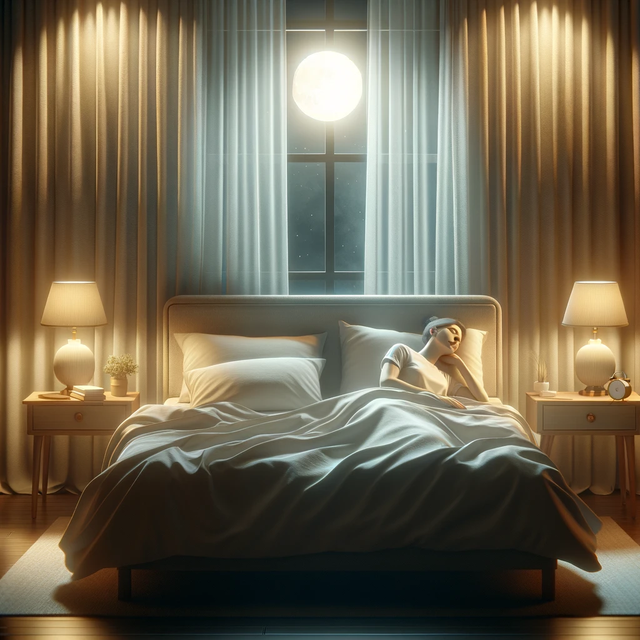How to Sleep Better - A Guide to Optimal Sleep
In our teens and 20's we tend to think of sleep as a luxury, but as we age, we start to realize how important optimizing sleep is for our overall wellbeing. It improves our cardiovascular function, boosts mood, eases depression and anxiety, helps us feel energized and fight off disease, just to name a few. Just go a few days without proper sleep and you'll see everything in your life start to suffer from your mental health to your relationships. We've compiled some of the best tips for perfecting your sleep from sleep experts like Matthew Walker and Andrew Huberman to help you learn how to sleep better and, in turn, better your life.
Key Points:
- Quality of sleep is just as important as quanitity
- Quantity of sleep needs to be 7-9 hours per night as consistently as you can get it.
- Regularity - making sure you keep a consistent schedule where you wakeup and go to sleep at roughly the same time each night is imperative for optimal sleep and wellbeing.
- Chronotype - this refers to if you're naturally a morning person, night owl, or somewhere in between. Try to cater to your natural rhythm which may differ from others. If you naturally want to go to be earlier and wake earlier, make that your habit and priority.
- Don't have kids. Ok have kids, but note that they can make all of these habits difficult during their early years so try to keep them on a great schedule too to help you as well.
Exposure to light
A simple, yet very effective method of setting your circadian rhythm and locking in your sleep and wake times is exposure to natural light. As soon as you wake up, spend 10 minutes on a sunny day or up to 30 on a cloudy day looking towards the sun without hurting your eyes. The wavelengths of light the sun gives off in the early morning set your circadian rhythm to help build cortisol in the morning to make you feel awake while helping to time the release of melatonin naturally at the correct times at night to help you fall asleep easier. If you only have time for one, just do it in the morning, but to make this approach more robust, view evening sunlight as well to give your internal clock a little nudge and reminder that bedtime is coming.
Following the protocol consistently over the course of a few weeks will help you ease into sleep much more quickly and you'll find yourself feeling more refreshed. Not to mention the mood boosting effects you'll receive from being outdoors to boot.
Regularity and Consistency
You may not realize it, but going to better at a consistent time every night, regardless of the day of the week, and waking up at near the same time can have profound effects on the overall quality of your sleep. The ideal would be to always nod off within 30 minutes of your normal sleep time and wake up within 30 minutes of your normal wake time. Even if it's the weekend and just like your bowels, staying regular is the best way to be.
Hello Darkness My Old Friend
Simon, or maybe Garfunkel sung it best. Darkness stimulates the release of melatonin which signals to your body to hit the hay. Having your room as dark as possible at night will do wonders for your sleep hygiene and help you wake up rested. Not only that, but keeping lights dimmer in the evening before bed will help guide you towards sleep even better.
Along those lines, if you're going to watch a show before bed, avoid using a laptop, computer, phone, or tablet. The blue lights emitted from these can really disrupt the timing of your sleep and counteract even your best efforts to maintain good sleep habits. These lights will signal to your body that it's daytime and inhibit the release of melatonin. If you're going to watch a show before turning in, a tv is a better option.
Get Hot to Keep Cool
I spent some time in Varanasi, India and a young street Urchin came up to me and asked if I wanted Pashmina. I didn't know what that was and he said, "you know, when hot make cold, when cold make hot." I didn't know, but I do now. Heating yourself up an hour or 2 before bed actually helps your body REDUCE its core temperature afterwards which is imperative for good sleep.
Studies show that your core body temperature needs to drop by 1-2 degrees to induce sleep. It may seem counter intuitive, but heating your body up prior to bed actually forces your body to push blood to the surface thus heating up the exterior temporarily, but reducing the core temp in the process which is what your body needs.
Workout
Elevating your heart rate during the day consistently will, overtime, reduce your resting and sleeping heart rate. A greater heart rate dip at night usually equates to higher sleep quality. You'll go into deeper sleep while also hitting your REM sleep on the regular as well. Nailing your workout will help you nail your sleep cycles as well, improving overall quality. You couple that with 7-9 hours a night and you're on your way to sleeping superstardom.
If you're having trouble staying consistent in the gym, remember to check out Upper Limit's pre-workout to give you a boost.
For more resources, check out the Andrew Huberman podcast on sleep.
Conclusion
To sum it all up, if you want to understand how to sleep better, you really need to focus on consistent bedtimes, constant wakeup times, darkness, and core body temperature. If you can nail each of these, you'll definitely see your sleep improve, and if your sleep improves, odds are your life, mood, energy, and health will too.


